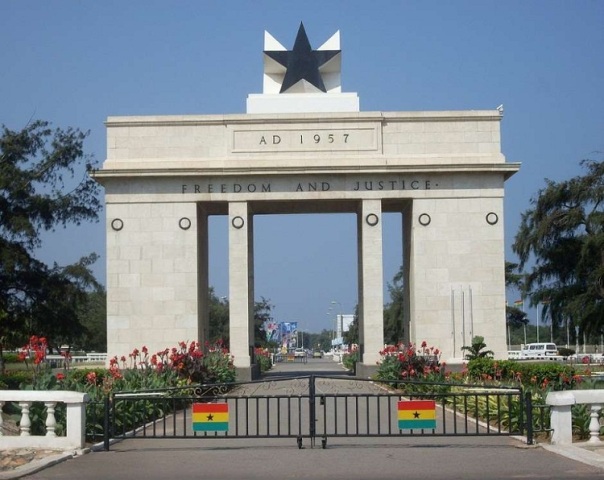If you have always wanted to know more about the country of Ghana, then all you need to do is to read on.
Facts About Ghana
The Republic of Ghana is situated in the western part of the African continent. Sandwiched between Cote d'Ivoire and Togo. Its territory extends over 230,940 sq km of land area and 8,520 sq km of water area. Ghana gained independence from Britain on 6 March 1957, and was deemed the first black African nation to be liberated from a colonial power. Ghanaian territory comprises of what was once the Ashanti Empire, a very influential pre-colonial African State dominated by the Akan people. In the 15th century, Ghana attracted the Portuguese who pounced upon the gold mines and started trading slaves. Ghana’s rich resources were later discovered by the Dutch, Swedes, Spaniards and the British. Wars commenced and carried on for decades. In 1947, the United Gold Coast Convention (UGCC) revolted against the prevalent British dominion, wreaking havoc until the first Prime Minister and President, Kwame Nkrumah declared Ghana- “free forever”. Continue reading some interesting and fun facts about this lovely country here.

Interesting And Fun Facts About Ghana
- Ghana has a population of 24,339,838.
- The country’s neighbours include Togo, Cote d’Ivoire, Mali and Burkina Faso.
- The climate in Ghana is tropical. It’s relatively warm along the southeast coast, humid in the southwest and extremely hot and dry in the north.
- The flag designed post independence consists of colors red, gold, green and a black star. The red signifies the bloodshed during the freedom struggle, the gold represents the country’s mineral wealth, while green symbolizes its rich agriculture and the black star is the symbol of African emancipation.
- Akans dominate by a 45.3% while Mole-Dagbons are 15.2% and Ewes, 11.7%, in terms of ethnic groups. 68.8% of the Ghanaians are Christians while 15.9% are Muslims.
- Ghana enjoys a constitutional democracy. Since 7 January 2001, Ghana has been governed by President John Agyekum Kufuor and Vice President Alhaji Aliu Mahama.
- Ghana has one of the best national African football teams holding a lot of promise to the future of African football. At the 2010 FIFA world cup in South Africa, Ghana was crowned the third African team in history to reach the world cup quarter-finals.
- Apart from Gold, Ghana is rich in timber, bauxite, manganese, rubber and industrial diamonds. Incidentally, Ghana is the world's second-largest producer of Cocoa. Thanks to these, Ghana has approximately twice the per capita output of the poorest West African countries.
- Ghana is renowned for the slave forts- Elmina and Cape Coast Castle. The gloomy dungeons are typically reminiscent of the thriving slave trade during the European colonial rule.
- The Currency used in Ghana is known as Cedi.
- The country’s domestic economy still revolves around agriculture, accounting for around 35% of GDP and employing 56% of the entire labor force.
- In Ghana, one cannot miss Lake Volta, the world’s largest artificial water body. This was created in 1996 by constructing a 370m wide and 124m tall dam at Akosombo in southern Ghana.
- Ghana signed a Millennium Challenge Corporation (MCC) Compact in 2006 with the primary motive of transforming Ghana's agricultural sector.
- Accra, the bustling capital of Ghana is known for raving nightclubs and the mesmerizing Makola markets. A fairly modern city, Accra is also relatively safe for outsiders.
- Kakum National Park is a rain forest with an attractive canopy walkway. In this park, you can easily spot breathtaking wildlife that hide in dense foliage.
- Ghana is full of outstanding beaches with excellent surfing facilities. Some of the best include Busua, Langma (near Kokrobite) and Butre.
- Lumbering, light manufacturing, aluminium smelting, cement, small commercial ship building and food processing are the most prominent industries prevalent in Ghana.
- Ghana possesses a substantial degree of media freedom with the private press operating without considerable restrictions and was described as "one of the most unfettered" press associations on the continent by the Commonwealth Press Union.
- Major offshore oil reserves have been discovered, but haven’t yet provided a major economic boost.
See also
More from iloveindia.com
- Home Remedies | Ayurveda | Vastu | Yoga | Feng Shui | Tattoos | Fitness | Garden | Nutrition | Parenting | Bikes | Cars | Baby Care | Indian Weddings | Festivals | Party ideas | Horoscope 2015 | Pets | Finance | Figures of Speech | Hotels in India : Delhi | Hyderabad | Chennai | Mumbai | Kolkata | Bangalore | Ahmedabad | Jaipur
- Contact Us Careers Disclaimer Privacy Policy Advertise With Us Lifestyle Sitemap Copyright iloveindia.com. All Rights Reserved.







